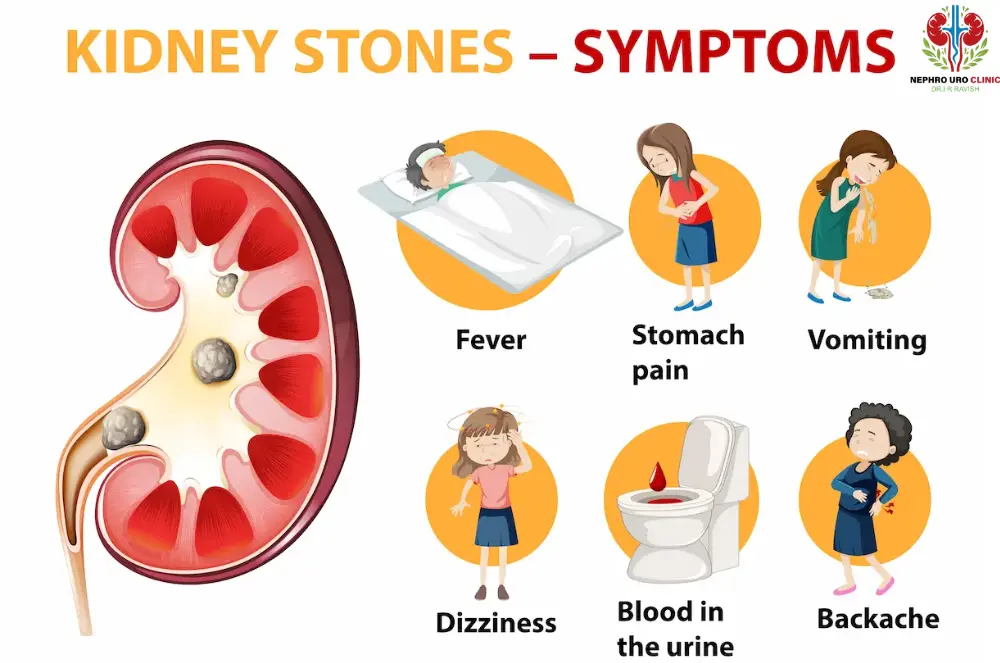Maintaining kidney health is vital for overall well-being, as the kidneys play a key role in filtering waste, balancing fluids, and regulating minerals in the body. The right diet can make a significant difference in keeping these organs functioning efficiently. Including nutrient-rich and kidney-friendly foods helps reduce the workload on the kidneys, supports healthy blood pressure, and prevents further damage. By choosing the best foods for kidney health, you can protect your kidneys naturally and promote long-term vitality.
Kidney-Friendly Vegetables & Plant Foods
Eating the right vegetables and plant-based foods can play a major role in maintaining healthy kidneys. These foods are rich in vitamins, minerals, and antioxidants that support kidney function and reduce the risk of inflammation or damage. If you’ve ever wondered what are the best foods for kidney health, here are some excellent options that can nourish your body and protect your kidneys naturally.
Cabbage and Cauliflower
Cabbage and cauliflower are low in potassium and packed with fiber, vitamin C, and other essential nutrients. They help the body eliminate toxins efficiently while being gentle on the kidneys. Their anti-inflammatory properties also make them ideal choices among the best foods for kidney health.
Bell Peppers
Colorful bell peppers are rich in antioxidants like vitamin C and contain very little potassium, making them perfect for a kidney-friendly diet. They add flavor and nutrition to meals without increasing sodium or phosphorus levels.
Garlic and Onions
Garlic and onions are powerful flavor enhancers that help reduce the need for excess salt in your meals. They also contain natural compounds that lower inflammation and support heart and kidney health, which go hand in hand.
Berries (Blueberries, Strawberries, and Cranberries)
Berries are antioxidant-rich fruits that protect cells from oxidative stress and reduce inflammation. They are low in potassium and high in beneficial plant compounds that help maintain kidney function and overall health.
Leafy Greens (in Moderation)
Leafy greens such as spinach, kale, and lettuce provide essential nutrients like vitamins A and C, calcium, and fiber. However, portion control is key for those with kidney issues, as some greens can be high in potassium.
Nuts, Seeds, and Healthy Oils
In small amounts, nuts and seeds offer healthy fats and protein that are good for the heart and kidneys. Using olive oil or flaxseed oil for cooking can further support kidney-friendly nutrition while enhancing overall wellness.

Nutritional Principles for Kidney Health
Understanding the right nutritional balance is essential to keeping your kidneys functioning properly. When you follow healthy eating habits, you can reduce strain on the kidneys and maintain overall wellness. The following principles are key when planning your meals and choosing foods for kidney health.
| Nutritional Element | Why It Matters | Simple Tips |
|---|---|---|
| Sodium (Salt) | Too much sodium can raise blood pressure and damage the kidneys over time. | Use herbs and spices instead of salt; avoid processed foods. |
| Potassium | Balancing potassium is crucial because high levels can affect heart rhythm. | Choose lower-potassium fruits and vegetables such as apples, berries, and cabbage. |
| Phosphorus | Excess phosphorus can weaken bones and harm kidney function. | Limit processed foods and dark colas; opt for fresh meals. |
| Protein | Protein is essential but should be taken in moderation to prevent excess strain on kidneys. | Prefer lean meats, egg whites, or plant-based proteins. |
| Fluids | Staying hydrated helps kidneys flush toxins effectively. | Drink water throughout the day unless restricted by your doctor. |
Following these principles helps maintain the body’s natural balance, reduces the risk of kidney damage, and supports healthy metabolism for long-term kidney care.
Other Beneficial Foods (Beyond Vegetables)
Apart from vegetables, several other food groups contribute to overall kidney wellness. These include proteins, whole grains, fruits, and healthy fats that protect the kidneys and support other vital organs like the liver. Adding a mix of these into your daily meals can help you get the most out of your diet while keeping your kidneys strong.
- Lean Proteins: Fish, egg whites, and skinless poultry provide high-quality protein with less fat and phosphorus compared to red meat. These foods support tissue repair and muscle strength without overburdening the kidneys.
- Whole Grains (in Moderation): Oats, rice, and barley offer fiber and slow-release energy. They aid digestion and help maintain stable blood sugar levels, which is important for preventing further kidney damage.
- Healthy Fats and Oils: Olive oil, flaxseed oil, and avocado oil are rich in omega-3 fatty acids, which lower inflammation and protect kidney tissues. Including these in your diet also supports heart and liver health.
- Dairy Alternatives: Unsweetened almond milk, soy milk, and rice milk are great substitutes for regular milk as they contain less phosphorus and potassium.
Combining these nutrient-dense items creates a balanced and sustainable meal plan. These are considered some of the best foods for kidney and liver health, helping your organs function efficiently and improving overall vitality.
🛑 Foods to Restrict or Avoid
Maintaining kidney health is about balance — it’s not just eating right but also knowing which foods to avoid. Some items can overwork the kidneys or cause further damage if eaten often. By staying mindful of what you eat, you can support the effects of the best foods for kidney health and protect your kidneys for the long run.
🥓 High-Sodium Foods
Excess salt causes water retention and increases blood pressure, which can be harmful to your kidneys. Processed snacks, pickles, and fast food should be kept to a minimum. Replacing salt with herbs and spices can help your meals stay tasty and kidney-friendly — a perfect complement to the best foods for kidney health.
🥩 Excess Red and Processed Meats
Processed meats like sausages, bacon, and salami contain preservatives and high sodium levels. Choose lean protein sources like fish, chicken, or plant-based options instead — they are considered among the best foods for kidney health because they support your body without adding extra stress to the kidneys.
🥤 Sugary Drinks and Sodas
Soft drinks and packaged juices are often loaded with sugar and phosphorus additives that can harm kidney function. Choose plain water, coconut water (if allowed), or infused water with mint and cucumber for a refreshing and healthy alternative.
🧀 High-Phosphorus & High-Potassium Foods
Foods like cheese, dark colas, chocolate, and bananas can increase phosphorus and potassium levels, which may be risky for those with kidney disease. Keep these in moderation and discuss your diet with a nutritionist for personalized guidance.
🍟 Fried and Junk Foods
Deep-fried snacks and fast food are full of unhealthy fats and salt. They not only strain your kidneys but also affect heart health. Opt for baked, steamed, or air-fried dishes instead.
🍎 Sample Kidney-Friendly Menu / Meal Ideas
A kidney-friendly meal plan doesn’t have to be boring! By choosing balanced, nutrient-rich foods, you can enjoy tasty meals while protecting your kidneys. Here’s a simple example of what are the best foods for kidney health that you can include in your daily menu.
🍳 Breakfast Ideas
- Oats cooked with almond milk and topped with blueberries.
- Egg white omelet with bell peppers and onions.
- Idli or poha with steamed vegetables for an Indian touch.
🥗 Lunch Options
- Grilled chicken or paneer with cabbage stir-fry.
- Steamed rice with dal (low-salt) and sautéed cauliflower.
- Chapati with ridge gourd curry and cucumber salad.
🥣 Evening Snacks
- Apple slices or a handful of unsalted nuts.
- Roasted chana or vegetable soup with garlic.
🍛 Dinner Choices
- Fish curry (low salt and oil) with boiled vegetables.
- Vegetable pulao made with olive oil and mild spices.
- Moong dal soup with bottle gourd or carrots for easy digestion — another wholesome addition to the best foods for kidney health list.
💧 Hydration Tip: Drink small amounts of water regularly throughout the day, unless restricted by your doctor.
Eating in this balanced and mindful way supports your kidneys naturally while keeping your meals flavorful and satisfying.
Conclusion
Taking care of your kidneys begins with simple, mindful food choices that nourish your body while reducing strain on these vital organs. Including fruits, vegetables, lean proteins, and healthy fats in your meals can protect kidney function. Avoiding excess salt, sugar, and processed foods further supports long-term wellness. Staying hydrated and maintaining a balanced diet are equally important. By focusing on the best foods for kidney health, you can strengthen your kidneys naturally.




